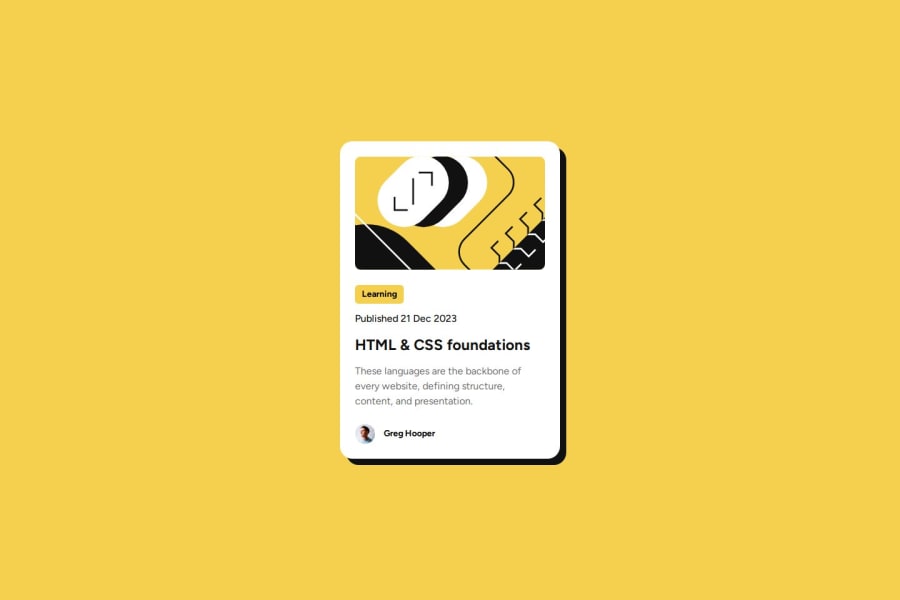
Submitted 5 months ago
blog preview card using flexbox
@Joliot-TSIMISARAKA
Design comparison
SolutionDesign
Solution retrospective
What are you most proud of, and what would you do differently next time?
I'm proud I've successfully finished this project. It was a real challenge as it forces you to look backward and reinforce your foundations. Having experienced the practicability of flexbox, I'm planning to master it alongside its rival, the grid system
What challenges did you encounter, and how did you overcome them?I wasted quite a bit of time planning the layout of the card and how to go about it. I finally decided to use flexbox with every container inside the card, as long as they have inside items to be aligned.
What specific areas of your project would you like help with?The part about media query and responsive design best practices, using relative units, are still a real challenge for me
Community feedback
Please log in to post a comment
Log in with GitHubJoin our Discord community
Join thousands of Frontend Mentor community members taking the challenges, sharing resources, helping each other, and chatting about all things front-end!
Join our Discord
